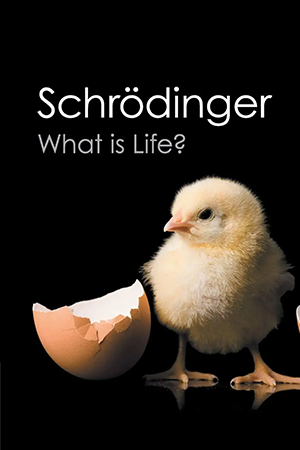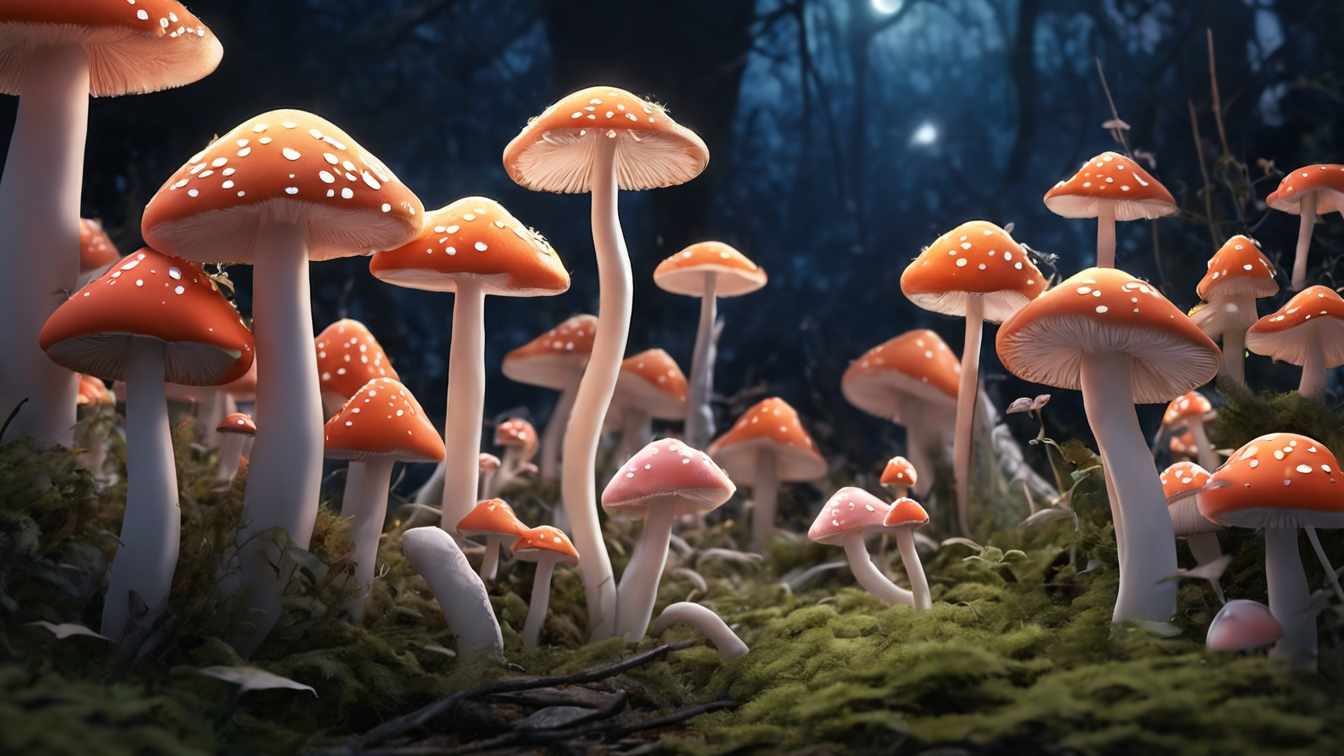
Library
Biology
Andrea Wulf
The Invention of Nature: Alexander von Humboldt's New World
Alexander von Humboldt (1769–1859) was an intrepid explorer and the most famous scientist of his age. In North America, his name still graces four counties, thirteen towns, a river, parks, bays, lakes, and mountains. His restless life was packed with adventure and discovery, whether he was climbing the highest volcanoes in the world or racing through anthrax-infected Siberia or translating his research into bestselling publications that changed science and thinking. Among Humboldt’s most revolutionary ideas was a radical vision of nature, that it is a complex and interconnected global force that does not exist for the use of humankind alone. Now Andrea Wulf brings the man and his achievements back into focus: his daring expeditions and investigation of wild environments around the world and his discoveries of similarities between climate and vegetation zones on different continents. She also discusses his prediction of human-induced climate change, his remarkable ability to fashion poetic narrative out of scientific observation, and his relationships with iconic figures such as Simón Bolívar and Thomas Jefferson. Wulf examines how Humboldt’s writings inspired other naturalists and poets such as Darwin, Wordsworth, and Goethe, and she makes the compelling case that it was Humboldt’s influence that led John Muir to his ideas of natural preservation and that shaped Thoreau’s Walden. With this brilliantly researched and compellingly written book, Andrea Wulf shows the myriad fundamental ways in which Humboldt created our understanding of the natural world, and she champions a renewed interest in this vital and lost player in environmental history and science.
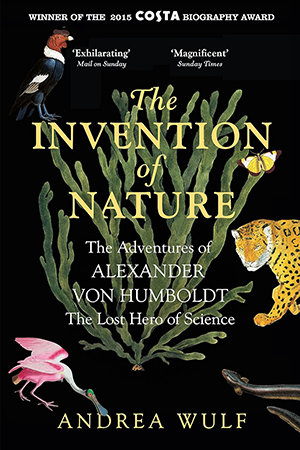
Ed Yong
An Immense World: How Animal Senses Reveal the Hidden Realms Around Us
The Earth teems with sights and textures, sounds and vibrations, smells and tastes, electric and magnetic fields. But every kind of animal, including humans, is enclosed within its own unique sensory bubble, perceiving but a tiny sliver of our immense world. In An Immense World, Ed Yong coaxes us beyond the confines of our own senses, allowing us to perceive the skeins of scent, waves of electromagnetism, and pulses of pressure that surround us. We encounter beetles that are drawn to fires, turtles that can track the Earth’s magnetic fields, fish that fill rivers with electrical messages, and even humans who wield sonar like bats. We discover that a crocodile’s scaly face is as sensitive as a lover’s fingertips, that the eyes of a giant squid evolved to see sparkling whales, that plants thrum with the inaudible songs of courting bugs, and that even simple scallops have complex vision. We learn what bees see in flowers, what songbirds hear in their tunes, and what dogs smell on the street. We listen to stories of pivotal discoveries in the field, while looking ahead at the many mysteries that remain unsolved.
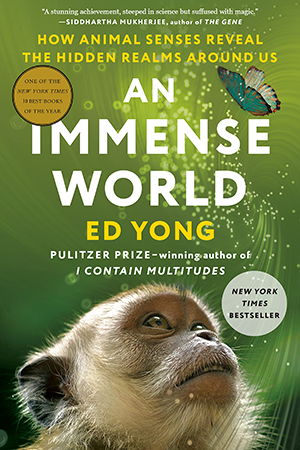
Frans de Waal
Different
Frans de Waal explores sex and gender in both humans and other animals. Though many scholars now argue that gender differences are purely a product of socialization, primatologist Frans de Waal illustrates in Different the scientific, evolutionary basis for gender differences in humans, drawing on his decades of experience working with our closest ape relatives: chimpanzees and bonobos. De Waal illuminates their behavioral and biological differences, and compares and contrasts them with human behavior: male domination and territoriality in chimpanzees and the female-led pacific society of bonobos. In his classic conversational style and a narrative rich in anecdotes and wry observations, de Waal tackles topics including gender identity, sexuality, gender-based violence, same-sex rivalry, homosexuality, friendship, and nurturance. He reveals how evolutionary biology can inform a more nuanced-and equitable-cultural understanding of gender. Ultimately, he argues, our two nearest primate relatives are equally close to us, and equally relevant. Considering all available evidence, we can learn much about ourselves and embrace our similarities as well as our differences
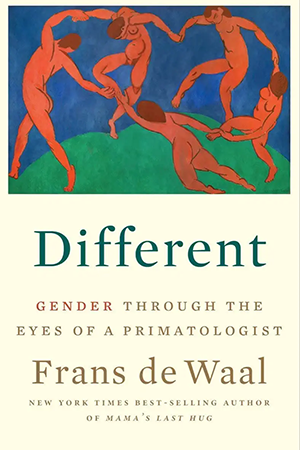
Kathleen McAuliffe
This Is Your Brain On Parasites
“Parasites can live only inside another animal and, as Kathleen McAuliffe reveals, these tiny organisms have many evolutionary motives for manipulating the behavior of their hosts. With astonishing precision, parasites can coax rats to approach cats, spiders to transform the patterns of their webs, and fish to draw the attention of birds that then swoop down to feast on them. We humans are hardly immune to their influence. Organisms we pick up from our own pets are strongly suspected of changing our personality traits and contributing to recklessness and impulsivity—even suicide. Germs that cause colds and the flu may alter our behavior even before symptoms become apparent. Parasites influence our species on the cultural level, too. Drawing on a huge body of research, McAuliffe argues that our dread of contamination is an evolved defense against parasites. The horror and revulsion we are programmed to feel when we come in contact with people who appear diseased or dirty helped pave the way for civilization, but may also be the basis for major divisions in societies that persist to this day. This Is Your Brain on Parasites is both a journey into cutting-edge science and a revelatory examination of what it means to be human.
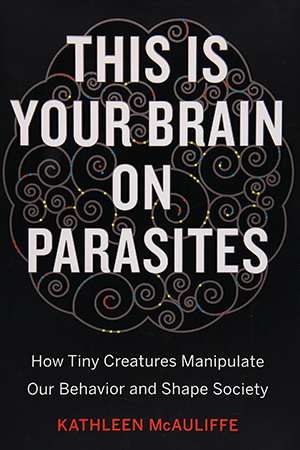
Sir David Attenborough
A Life on Our Planet
In this scientifically informed account of the changes occurring in the world over the last century, award-winning broadcaster and natural historian shares a lifetime of wisdom and a hopeful vision for the future. See the world. Then make it better. I am 93. I have had an extraordinary life. It is only now that I appreciate how extraordinary. As a young man, I felt I was out there in the wild, experiencing the untouched natural world - but it was an illusion. The tragedy of our time has been happening all around us, barely noticeable from day to day -- the loss of our planets wild places, its biodiversity. I have been witness to this decline. A Life on Our Planet is my witness statement, and my vision for the future. It is the story of how we came to make this, our greatest mistake -- and how, if we act now, we can yet put it right. We have one final chance to create the perfect home for ourselves and restore the wonderful world we inherited. All we need is the will to do so.
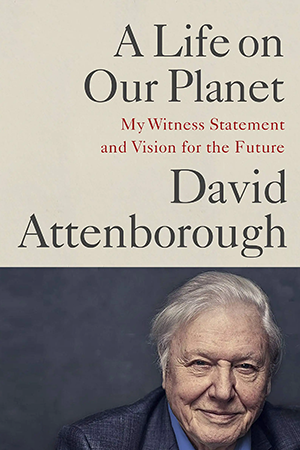
Elizabeth Kolbert
Under a White Sky
That man should have dominion “over all the earth, and over every creeping thing that creepeth upon the earth” is a prophecy that has hardened into fact. So pervasive are human impacts on the planet that it’s said we live in a new geological epoch: the Anthropocene. In Under a White Sky, Elizabeth Kolbert takes a hard look at the new world we are creating. Along the way, she meets biologists who are trying to preserve the world’s rarest fish, which lives in a single tiny pool in the middle of the Mojave; engineers who are turning carbon emissions to stone in Iceland; Australian researchers who are trying to develop a “super coral” that can survive on a hotter globe; and physicists who are contemplating shooting tiny diamonds into the stratosphere to cool the earth. One way to look at human civilization, says Kolbert, is as a ten-thousand-year exercise in defying nature. In The Sixth Extinction, she explored the ways in which our capacity for destruction has reshaped the natural world. Now she examines how the very sorts of interventions that have imperiled our planet are increasingly seen as the only hope for its salvation. By turns inspiring, terrifying, and darkly comic, Under a White Sky is an utterly original examination of the challenges we face.
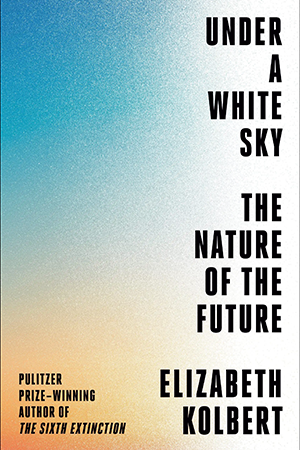
Paul Nurse
What Is Life?: Five Great Ideas in Biology
The Nobel Prize–winning scientist’s elegant explanation of the fundamental ideas in biology and their uses today. The renowned biologist Paul Nurse has spent his career revealing how living cells work. In What Is Life?, he takes up the challenge of describing what it means to be alive in a way that every reader can understand. It is a shared journey of discovery; step-by-step Nurse illuminates five great ideas that underpin biology—the Cell, the Gene, Evolution by Natural Selection, Life as Chemistry, and Life as Information. He introduces the scientists who made the most important advances, and, using his personal experiences in and out of the lab, he shares with us the challenges, the lucky breaks, and the thrilling eureka moments of discovery. Nurse writes with delight at life’s richness and with a sense of the urgent role of biology in our time. To survive the challenges that face us all today—climate change, pandemic, loss of biodiversity and food security—it is vital that we all understand what life is.
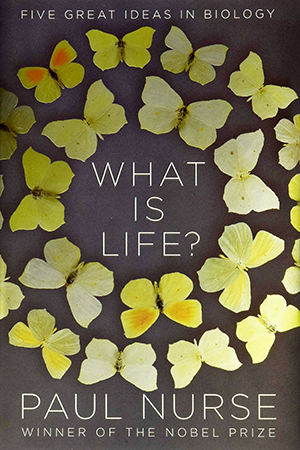
Erika Engelhaupt
Gory Details
Uses humour and real science to illuminate the gross, strange, morbid, and outright absurd realities of our bodies, our earth, and our universe. Filled to the brim with far-out facts, this wickedly informative narrative from the author of National Geographic's popular Gory Details blog takes us on a fascinating journey through an astonishing new reality. Blending humor and journalism in the tradition of Mary Roach, acclaimed science reporter Erika Engelhaupt investigates the gross, strange, and morbid absurdities of our bodies and our universe. From the research biologist who stung himself with every conceivable insect to the world's most murderous mammals, this entertaining book explores oft-ignored but alluring facets of biology, anatomy, space exploration, nature, and more. Featuring interviews with leading researchers in the field and a large dose of wit, this provocative book reveals the most intriguing real-world applications of science in all their glory.
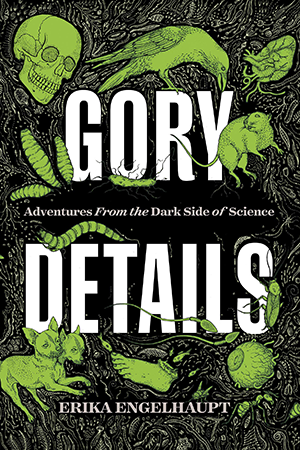
Frans de Waal
Different: Gender Through the Eyes of a Primatologist
“Every new book by Frans de Waal is a cause for excitement, and this one is no different. A breath of fresh air in the cramped debate about the differences between men and women. Fascinating, nuanced, and very timely.” —Rutger Bregman, author of Humankind: A Hopeful History In Different, world-renowned primatologist Frans de Waal draws on decades of observation and studies of both human and animal behavior to argue that despite the linkage between gender and biological sex, biology does not automatically support the traditional gender roles in human societies. While humans and other primates do share some behavioral differences, biology offers no justification for existing gender inequalities. Using chimpanzees and bonobos to illustrate this point—two ape relatives that are genetically equally close to humans—de Waal challenges widely held beliefs about masculinity and femininity, and common assumptions about authority, leadership, cooperation, competition, filial bonds, and sexual behavior. Chimpanzees are male-dominated and violent, while bonobos are female-dominated and peaceful. In both species, political power needs to be distinguished from physical dominance. Power is not limited to the males, and both sexes show true leadership capacities. Different is a fresh and thought-provoking approach to the long-running debate about the balance between nature and nurture, and where sex and gender roles fit in. De Waal peppers his discussion with details from his own life—a Dutch childhood in a family of six boys, his marriage to a French woman with a different orientation toward gender, and decades of academic turf wars over outdated scientific theories that have proven hard to dislodge from public discourse. He discusses sexual orientation, gender identity, and the limitations of the gender binary, exceptions to which are also found in other primates. With humor, clarity, and compassion, Different seeks to broaden the conversation about human gender dynamics by promoting an inclusive model that embraces differences, rather than negating them.
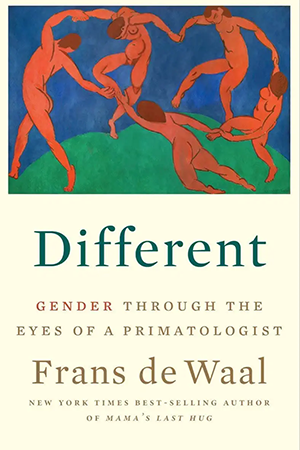
Michael Tomasello
The Evolution of Agency
A leading developmental psychologist proposes an evolutionary pathway to human psychological agency. Nature cannot build organisms biologically prepared for every contingency they might possibly encounter. Instead, Nature builds some organisms to function as feedback control systems that pursue goals, make informed behavioral decisions about how best to pursue those goals in the current situation, and then monitor behavioral execution for effectiveness. Nature builds psychological agents. In a bold new theoretical proposal, Michael Tomasello advances a typology of the main forms of psychological agency that emerged on the evolutionary pathway to human beings. Tomasello outlines four main types of psychological agency and describes them in evolutionary order of emergence. First was the goal-directed agency of ancient vertebrates, then came the intentional agency of ancient mammals, followed by the rational agency of ancient great apes, ending finally in the socially normative agency of ancient humans. Each new form of psychological organization represented increased complexity in the planning, decision-making, and executive control of behavior. Each also led to new types of experience of the environment and, in some cases, of the organism’s own psychological functioning, leading ultimately to humans’ experience of an objective and normative world that governs all of their thoughts and actions. Together, these proposals constitute a new theoretical framework that both broadens and deepens current approaches in evolutionary psychology.
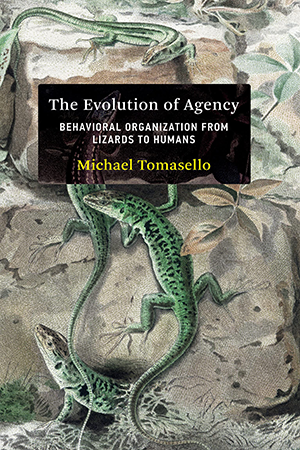
Stephen Jay Gould
Full House
Few would question the truism that humankind is the crowning achievement of evolution; that the defining thrust of life's history yields progress over time from the primitive and simple to the more advanced and complex; that the disappearance of .400 hitting in baseball is a fact to be bemoaned; or that identifying an existing trend can be helpful in making important life decisions. Few, that is, except Stephen Jay Gould who, in his new book Full House: The Spread of Excellence from Plato to Darwin, proves that all of these intuitive truths are, in fact, wrong. "All of these mistaken beliefs arise out of the same analytical flaw in our reasoning, our Platonic tendency to reduce a broad spectrum to a single, pinpointed essence," says Gould. "This way of thinking allows us to confirm our most ingrained biases that humans are the supreme being on this planet; that all things are inherently driven to become more complex; and that almost any subject can be expressed and understood in terms of an average."
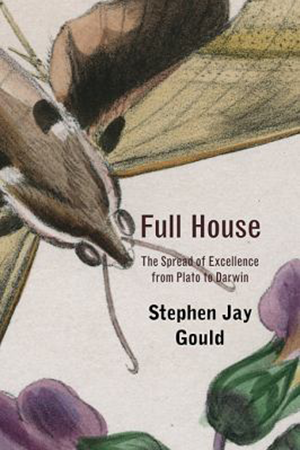
Eric R. Kandel
Principles of Neural Science
or more than 40 years, Principles of Neural Science has helped readers understand the link between the human brain and behavior. As the renowned text has shown, all behavior is an expression of neural activity and the future of both clinical neurology and psychiatry is dependent on the progress of neural science. Fully updated, this sixth edition of the landmark reference reflects the latest research, clinical perspectives, and advances in the field. It offers an unparalleled perspective on the the current state and future of neural science.
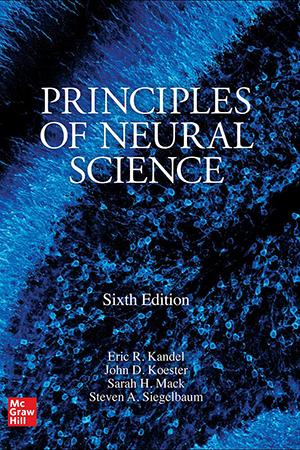
Merlin Sheldrake
Entangled Life
When we think of fungi, we likely think of mushrooms. But mushrooms are only fruiting bodies, analogous to apples on a tree. Most fungi live out of sight, yet make up a massively diverse kingdom of organisms that supports and sustains nearly all living systems. Fungi provide a key to understanding the planet on which we live, and the ways we think, feel, and behave. In the first edition of this mind-bending book, Sheldrake introduced us to this mysterious but massively diverse kingdom of life. This exquisitely designed volume, abridged from the original, features more than one hundred full-color images that bring the spectacular variety, strangeness, and beauty of fungi to life as never before. Fungi throw our concepts of individuality and even intelligence into question. They are metabolic masters, earth makers, and key players in most of life’s processes. They can change our minds, heal our bodies, and even help us remediate environmental disaster. By examining fungi on their own terms, Sheldrake reveals how these extraordinary organisms—and our relationships with them—are changing our understanding of how life works.
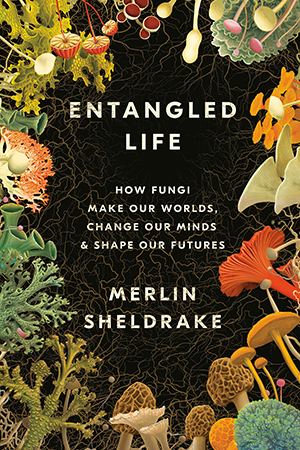
Aimee Nezhukumatathil
World of Wonders
As a child, Nezhukumatathil called many places home: the grounds of a Kansas mental institution, where her Filipina mother was a doctor; the open skies and tall mountains of Arizona, where she hiked with her Indian father; and the chillier climes of western New York and Ohio. But no matter where she was transplanted—no matter how awkward the fit or forbidding the landscape—she was able to turn to our world’s fierce and funny creatures for guidance. “What the peacock can do,” she tells us, “is remind you of a home you will run away from and run back to all your life.” The axolotl teaches us to smile, even in the face of unkindness; the touch-me-not plant shows us how to shake off unwanted advances; the narwhal demonstrates how to survive in hostile environments. Even in the strange and the unlovely, Nezhukumatathil finds beauty and kinship. For it is this way with wonder: it requires that we are curious enough to look past the distractions in order to fully appreciate the world’s gifts. Warm, lyrical, and gorgeously illustrated by Fumi Nakamura, World of Wonders is a book of sustenance and joy.
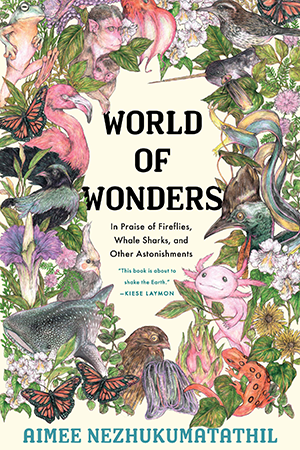
D'Arcy Wentworth Thompson
On Growth and Form
Classic of modern biology sets forth seminal theory of transformation that evolution takes place in large-scale transformations of body as a whole. Over 500 photographs and drawings. In this classic of biology and modern science, Sir D'Arcy Wentworth Thompson (1860–1948), one of the most distinguished scientists of the modern era, sets forth his seminal "theory of transformation" - that one species evolves into another not by successive minor changes in individual body parts but by large-scale transformations involving the body as a whole. First written in 1917, the book was revised by Thompson in 1942 — the revision reprinted here. The esteem in which this monumental, lavishly illustrated work is universally held derives not only from its scholarship and creativity, but also from the rich literary style that exemplifies Thompson's great erudition in the physical and natural sciences, ancient and modern languages and the humanities. The book begins with studies of organic magnitude, the rate of growth, cellular form and structure, adsorption, and the forms of tissues, then examines a vast spectrum of life forms, and concludes with a comparison of related forms that leads to the theory of transformations.
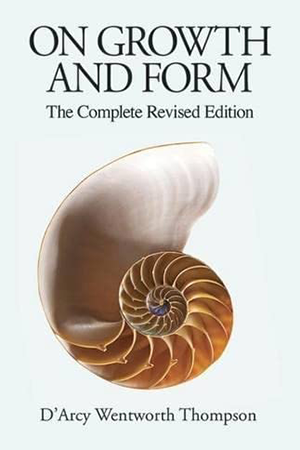
Erwin Schrodinger
What is Life?
What Is Life? is Nobel laureate Erwin Schrödingers exploration of the question which lies at the heart of biology. His essay, Mind and Matter, investigates what place consciousness occupies in the evolution of life, and what part the state of development of the human mind plays in moral questions. Autobiographical Sketches offers a fascinating fragmentary account of his life as a background to his scientific writings.
